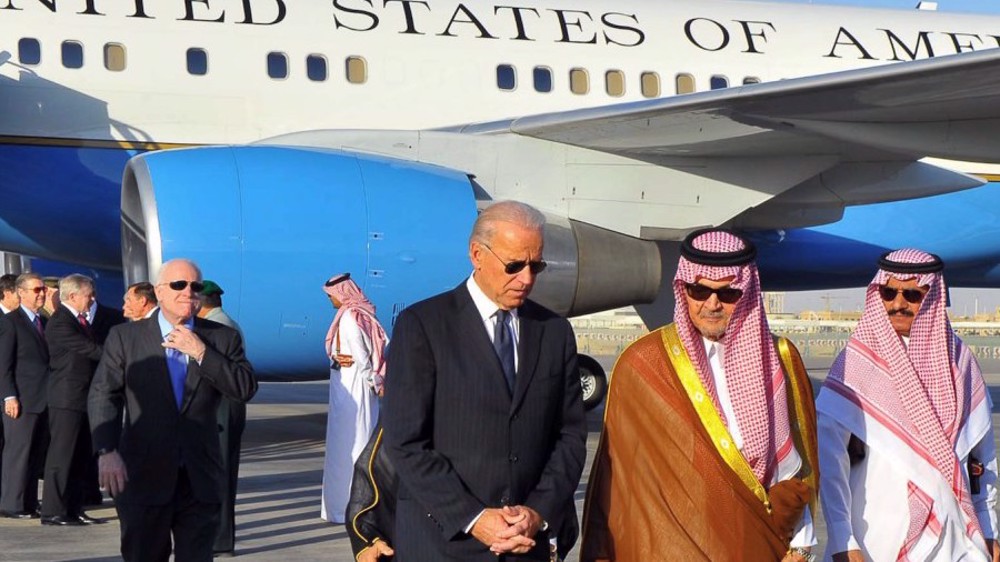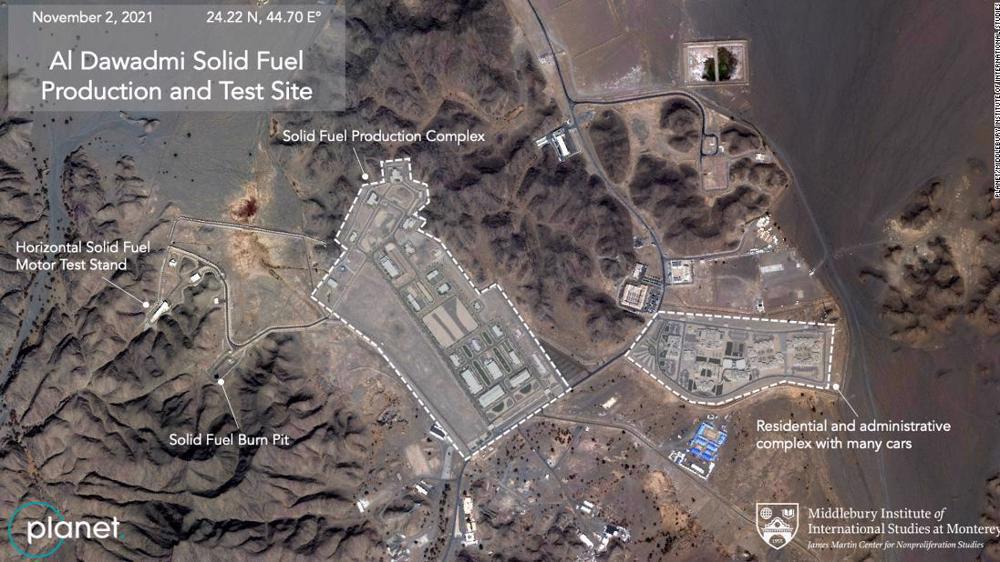Is Biden really concerned about the Saudi ballistic missile program?
Former American diplomat and political analyst J. Michael Springmann doubts that US President Joe Biden is really concerned about Saudi Arabia’s manufacturing of ballistic missiles, as has been shown by US satellite images.
US satellite images acquired by American broadcaster CNN suggest that Saudi Arabia is actively manufacturing ballistic missiles in at least one location.
Sources familiar with the latest US intelligence claimed in the report that China is helping the conservative kingdom in this regard.
In recent months, according to the report, US officials at several agencies, including the National Security Council at the White House, have been briefed on classified intelligence revealing a number of large-scale transfers of sensitive ballistic missile technology between China and Saudi Arabia.
The report observed that the Biden administration is concerned that Saudi's ballistic missile advancements could dramatically change regional power dynamics and complicate American attempts to put restraints on Iran’s own missile technology.
“Really? Joe is concerned? Does he realize that his previous wild remarks about ‘hostile’ and ‘dangerous’ China have consequences? And that his remarks are causing the Chinese to move into prior American spheres of influence?” asked J. Springmann, a former US diplomat in Saudi Arabia.
“In the late 1980s, before the US State Department fired him, this author reported the Saudi import of Chinese Intermediate Range Ballistic Missiles (IRBMs) tagged Silkworm. At the time, there was a great uproar in the international news media and the writer’s information about the actual introduction of the missiles went nowhere (except to the US embassy in Riyadh and to the then-president's daily security briefing),” he stated.
“This time around, the Chinese are back with advice and assistance—on solid-fuel missiles. (The Silkworms were liquid-fueled.) According to Jeffrey Lewis, a weapons expert, and professor at the Middlebury Institute of International Studies, The domestic production of ballistic missiles by Saudi Arabia suggests that any diplomatic effort to control missile proliferation would need to involve other regional actors, like Saudi Arabia and Israel, that produce their own ballistic missiles,’ he added.
“Now that the Saudis have joined the missile race, along with the Apartheid Entity styling itself Israel, Iran has more problems (and opportunities) for its defensive missiles. Will the Islamic Republic demand that Israel reduce or eliminate its rockets, many of which can be nuclear-tipped? Will the Islamic Republic require international intervention to end the Saudi program? Or will the Islamic Republic press ahead with newer and better defensive missiles?” Springmann said.
Despite decades of Washington-imposed sanctions, Iran has made great achievements in its ballistic missiles program.
A Pentagon study has hailed Iran’s missiles program, saying its arsenal is larger than that of any other Middle Eastern country.
"Iran has an extensive missile development program, and the size and sophistication of its missile force continue to grow despite decades of counter-proliferation efforts aimed at curbing its advancement," according to the Pentagon.
VIDEO | Thousands evacuated in Ethiopia amid earthquakes, volcanic eruption fears
Revealed: Israeli ministers eye restoration of illegal settlements in Gaza through genocide
How Los Angeles’ pistachio tycoons facilitated and profited from wildfires
Iraqi PM: Iran was in Syria to fight terrorism; presence requested by Damascus
Hamas: Israel's massacre in Jenin camp won’t break resistance
60 bodies recovered from abandoned South African gold mine: Police
Biden administration ‘quietly’ circumnavigating own ban on TikTok: Report
Iran Navy takes delivery of first advanced ‘signals-intelligence’ destroyer











 This makes it easy to access the Press TV website
This makes it easy to access the Press TV website